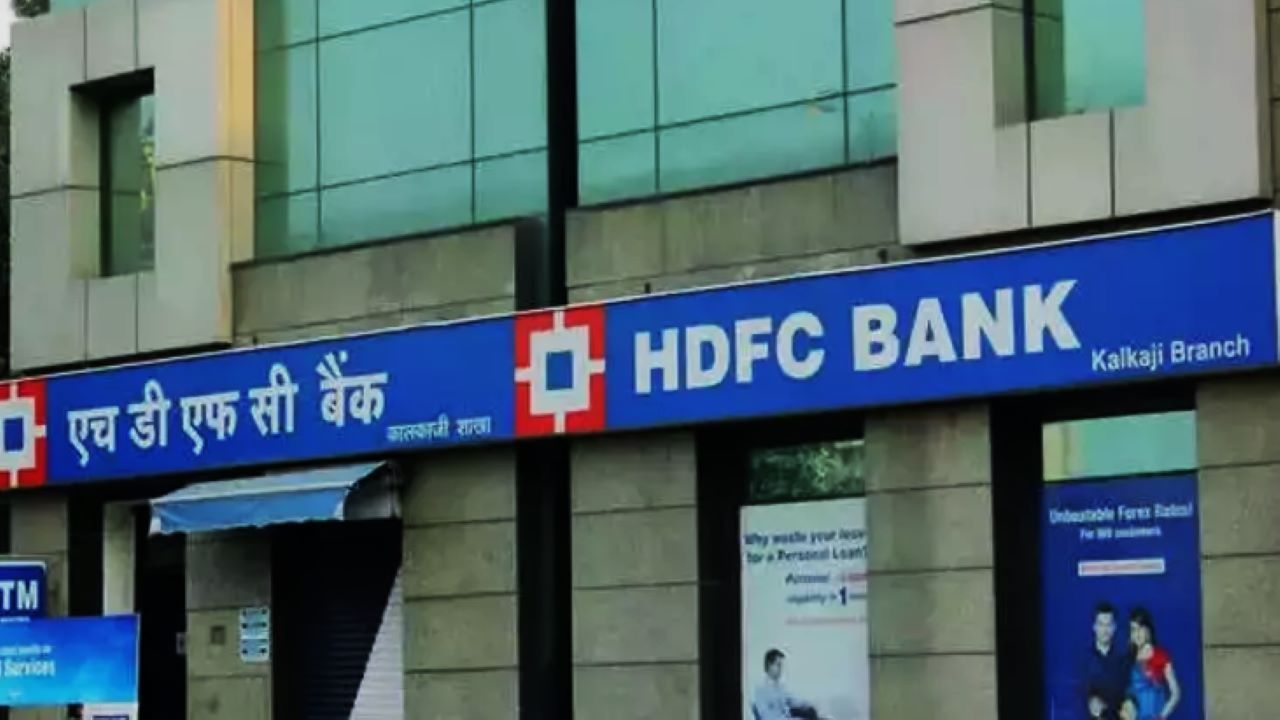HDFC Bank Loses ₹1 Lakh Crore in Market Cap Post-Q3 Results Amidst Market Turmoil in a startling turn of events. HDFC Bank, one of India’s premier banking institutions, witnessed a dramatic drop in its stock value, plummeting more than 8% immediately following the announcement of its Q3 results. This significant decline led to a loss of around ₹1 lakh crore in market capitalization (MCap), a development that has sent ripples through the Indian financial sector.
The sharp decrease in HDFC Bank’s stock value was part of a broader downturn in the Indian stock market. The Sensex tumbled over 1600 points, while the Nifty fell by more than 450 points. This market slump erased over ₹4 lakh crore of investor wealth in a single day, highlighting the volatile nature of the stock markets and raising concerns among investors and market analysts alike.

HDFC Bank Loses ₹1 Lakh Crore Despite Strong Results
What makes this development particularly perplexing is the strong performance HDFC Bank reported for the quarter ending December. The bank posted a robust 34% increase in net profit, totaling ₹16,372 crore. However, the market’s response did not mirror this positive performance. HDFC Bank’s shares dropped to a low of ₹1528, a steep decline from its opening level.
Analyzing the Market’s Reaction
This divergence between HDFC Bank’s financial performance and its stock market valuation points to a complex set of factors influencing investor sentiment. Market experts suggest that while the profit numbers are impressive, investors might be weighing other elements, including future earnings potential, the broader economic landscape, regulatory changes, and global market trends.
Broader Market Trends
HDFC Bank’s decline is not an isolated incident in the Indian stock market. Other major stocks, including Indian Energy Exchange and Zomato, have also experienced significant drops. This pattern indicates a wider market correction or a response to macroeconomic factors, possibly including global economic uncertainties, changes in foreign investment flows, or domestic policy shifts.
Impact on the Banking Sector
The sharp decline in HDFC Bank’s market value is particularly significant given its stature in the Indian banking sector. As a leading private sector bank, its performance is often seen as a barometer for the health of the financial sector in India. The current situation raises questions about the future outlook for the banking industry and its resilience in the face of economic challenges.
Investor Sentiment and Future Outlook
The reaction of the market to HDFC Bank’s Q3 results can also be attributed to the overall sentiment among investors. With the global economic scenario being uncertain, investors are becoming increasingly cautious. There is a growing tendency to react swiftly to any news that might indicate a potential downturn. This heightened sensitivity can lead to significant market fluctuations, as seen in HDFC Bank’s case.
Regulatory Factors and Economic Indicators
In addition to investor sentiment, regulatory changes and economic indicators play a crucial role in shaping market trends. The Reserve Bank of India’s monetary policies, changes in interest rates, and inflation figures are closely watched by investors. Any indication of a policy shift or economic instability can lead to significant market movements.
Global Influences
The Indian stock market is also influenced by global economic trends and foreign investment patterns. Fluctuations in global markets, changes in US Federal Reserve policies, and international trade tensions can have a cascading effect on Indian stocks, as global investors recalibrate their portfolios in response to these changes.
Complex interplay of factors that drive stock market movements
The decline in HDFC Bank’s stock value post its Q3 results is a stark reminder of the complex interplay of factors that drive stock market movements. While the bank’s financial performance was strong, the negative market reaction underscores the importance of broader economic, regulatory, and global factors in shaping investor sentiment and stock valuations.
As the market adjusts to these developments, the focus now shifts to how HDFC Bank and the broader Indian banking sector will navigate these turbulent times. The ability of these institutions to adapt to changing economic conditions and investor expectations will be critical in determining their future success and stability in the volatile world of stock market trading.